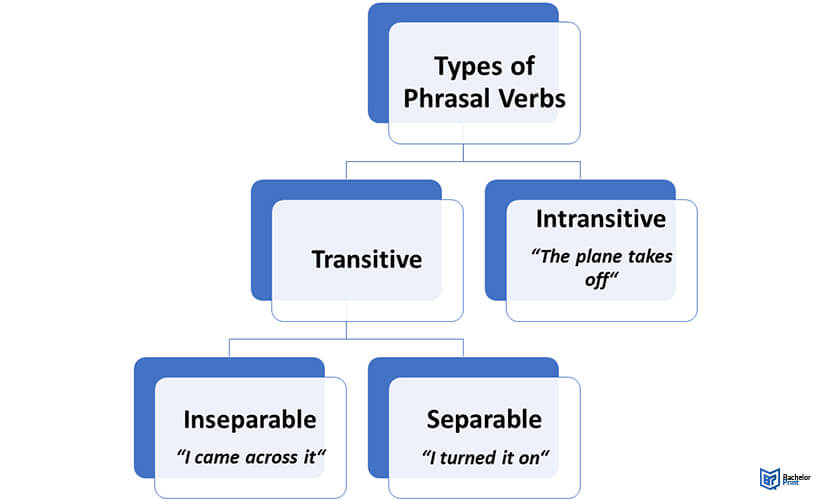
Phrasal verbs, while often considered more casual, can still play a role in academic writing, contributing to the versatility and expressiveness of your language. Understanding the language rules pertaining to the use of these multi-word verbs, which consist of a verb combined with a preposition or adverb, is key to employing them appropriately and effectively. With the correct usage of phrasal verbs, you can add nuance to your arguments and make your academic writing more dynamic.
Definition: Phrasal verbs
Multi-words or phrasal verbs consist of a verb with one or two other words called particles or prepositions: on, in, out, down, over, etc.
In addition, we can include prepositional verbs – verbs followed by a preposition – within this category.
How to conjugate phrasal verbs
In the present simple, we conjugate phrasal verbs in the same way as ordinary verbs. The third-person singular (he, she, or it) takes the suffix -s.
Sometimes, the continuous form of the verb is more usual. We might say that we are looking forward to a holiday. Here, the infinitive is ‘to look forward to something,’ one of several examples with two particles.
Types of phrasal verbs
We can subdivide these verbs into transitive and intransitive categories, as well as separable and inseparable. Let’s explore these concepts.
Transitive phrasal verbs
A transitive phrasal verb has an object which follows in the same sentence. For instance, one literal meaning of to take off is to remove a garment.
Intransitive phrasal verbs
Intransitive verbs do not take an object. In some instances, a phrasal verb can be either transitive or intransitive. To extend the above example, the verb ‘to take off’ also has an idiomatic or non-literal meaning.
Separable phrasal verbs
If a phrasal verb is separable, we may put the object noun (or pronoun) between the verb and the particle. Broadly, the choice is one of sentence emphasis, style, or habit.
Inseparable phrasal verbs
Sometimes, a phrasal verb with a preposition and particle is inseparable, so we do not separate the verb from the next word.

List of common phrasal verbs
| Infinitive | Meaning | Example |
|
to get to |
to arrive somewhere | I usually get to college early. |
|
to go on |
to continue |
The meeting went on for hours. |
|
to get on |
to board a bus, train, plane or seagoing vessel. to have a good relationship with someone OR to continue (working). |
Be careful when getting on trains. I get on with my sister-in-law. We need to get on and finish the job. |
|
to take out |
to remove or to contract something |
The dentist took out my tooth (OR ...took my tooth out). Motorists have to take out insurance. |
|
to take up |
to carry something upwards to start a new sport or pastime |
Let's take the shopping up now! Some retired people take up golf. |
|
to go in/into |
to enter | Yesterday, I went into the hardware store. |
Other frequently-heard examples include to back up data, check out, end up, find out, give up and let (someone) know.
Printing Your Thesis With BachelorPrint
- High-quality bindings with customizable embossing
- 3D live preview to check your work before ordering
- Free express delivery
Configure your binding now!
FAQs
Common phrasal-prepositional verbs include to go on, go in and go out. You can find more in the article above.
They came from the old Norse, Germanic and Saxon roots of English, in which short words dominated. However, after the Norman invasion of England in 1066, Anglo-French (Latin-based) language inputs prevailed.
Generally, these verbs are more conversational and informal than their Latin-based equivalents. Thus, they tend to be more common in everyday conversation.
Yes, many have multiple meanings. For instance, making up can mean reconciling, applying cosmetics, inventing a story, or compensating for lost time.
